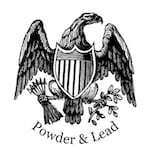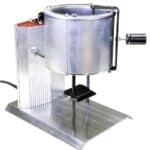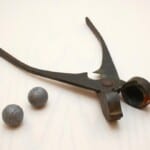
Gas Checks
Gas checks are small metal cups or discs that are attached to the base of a cast lead bullet. It is designed to prevent the hot gases and pressures generated during the firing process from melting or deforming the base of the bullet.
When reloading lead bullets for high-velocity or magnum cartridges, the bullet may experience significant pressure and heat during firing. Lead is a relatively soft material, and it can deform or melt when subjected to these conditions. This can cause accuracy issues, leading to fouling of the barrel and inconsistent bullet performance.
To address this problem, a gas check is often used. A gas check is typically made of a harder metal, such as copper or aluminum, and it fits over the base of the bullet. The gas check acts as a shield between the hot gases and the lead, helping to prevent melting or deformation. It also helps seal the bullet to the barrel, enhancing accuracy and reducing fouling.
Gas checks are commonly used in cast bullet reloading, especially for higher-velocity rifle rounds. They are not typically used with jacketed or plated bullets, as those designs already incorporate a metal jacket or plating to protect the bullet's base.
It's important to note that the use of gas checks requires specific equipment and techniques. The gas check needs to be properly seated and crimped onto the bullet to ensure reliable performance. Reloading manuals and specialized resources provide detailed instructions on how to use gas checks effectively for bullet reloading.
If you'd like to join discussion groups on reloading, click here.
If you know of any forums or sites that should be referenced on this listing, please let us know here.



